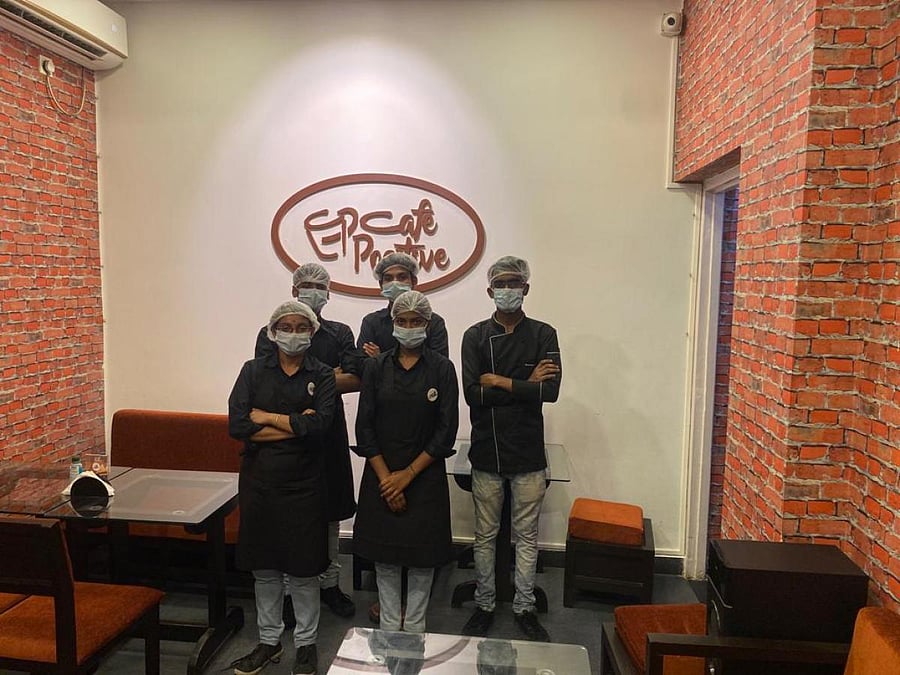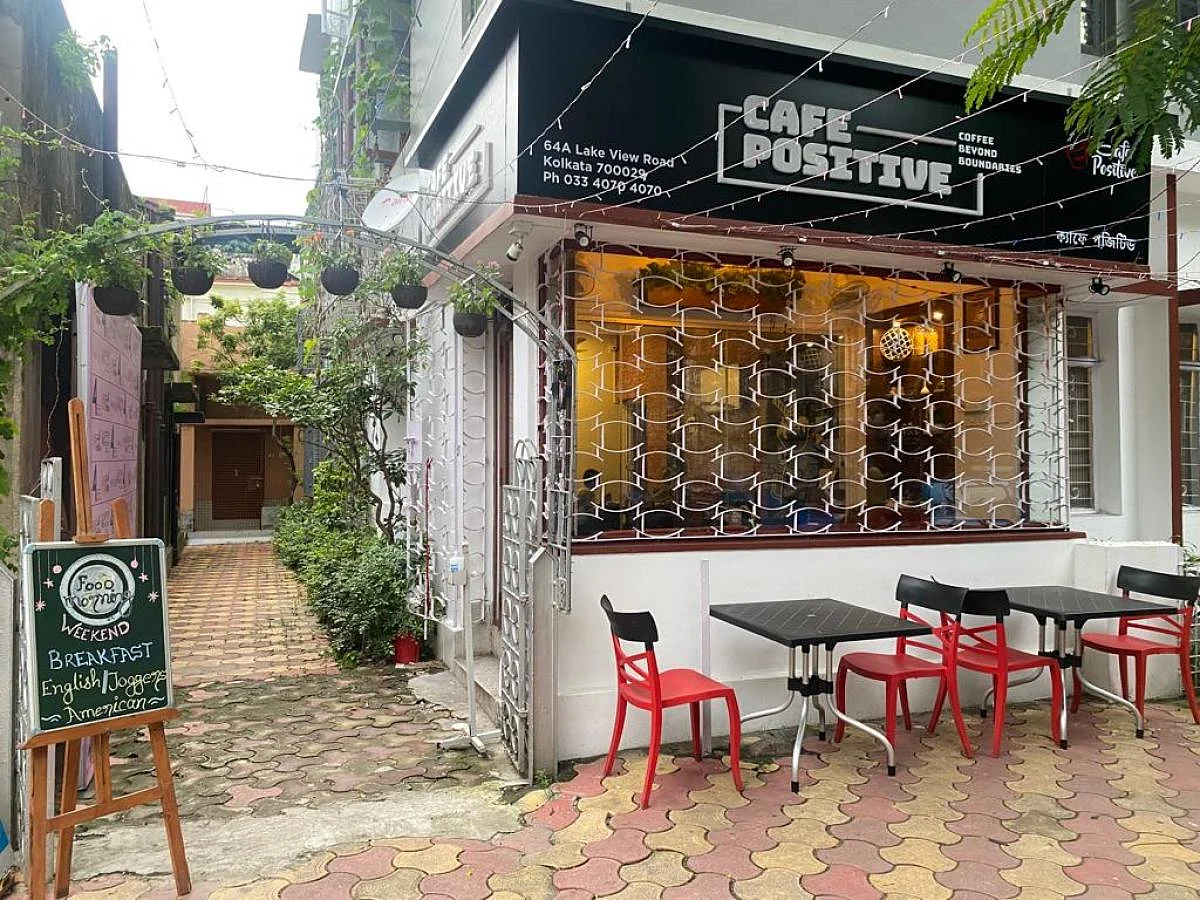

Cafe Positive in south Kolkata serves pasta, desserts, sandwiches, burgers, omelettes, and other beverages, besides coffee prepared using Italian coffee beans.
Cafe Positive happens to be Asia’s first cafeteria run by four girls and seven boys who are HIV-positive. A chef assists them.
The team starts their day at 11 am, and continues to serve visitors till 7 pm in shifts, seven days a week. A weekend breakfast is also available.
The world has rapidly advanced over the last two decades but people infected with HIV continue to face social stigma and are left with limited opportunities for earning a livelihood. Cafe Positive aims at shattering the jinx
Kallol Ghosh, a philanthropist, and his friends have put in years of struggle to create a space that not only offers work opportunities, but also doubles up as a venue that dispels fear and myths that people carry in general.
Ghosh has been working on child rights for over three decades. In the 80s, as an expressway was being laid on the fringes of north Kolkata, he observed that kids came around the construction stretch to pick pieces from the coal dust that was being used to build the road.
While this helped parents with some fringe money, it was fatal for them, exposing them to getting run over by the passing train on nearby tracks. After appearing for their tenth standard exams, Ghosh and his friends started a pavement school for the children close to the railway station, in 1982. The children who dwelled at the nearby local station at Dumdum were prone to abuse, and were mistreated. The journey towards building Cafe Positive began at this point, when Ghosh managed to raise some funds and established a night shelter — Aapan Ghar (own house). The ‘street’ children discovered a ‘home’ for themselves. One more home was built for girls, two years later, and another one for mentally-challenged children.
Ghosh refined his social efforts, forming the Organisation For Friends Energies and Resources (OFFER) in 1986.
Anandaghar, a palliative paediatric centre — for providing total care to children — was started in 2006, when Ghosh came across cases of HIV-infected children. An infant abandoned by an infected mother, one deprived of parental care when the father fled and the mother committed suicide, were sheltered here. Some of these kids are today running the cafe.
During a trip to Germany, in 2016, Ghosh came across a restaurant that was run entirely by HIV-infected individuals. Finding a place back in Kolkata turned out to be tough as people were not forthcoming when they heard that HIV-infected youngsters will be a part of the project. Finally, a garage space could be rented to start a cake shop in 2018. Following crowd funding, Cafe Positive got a more formal shape in 2020. Ghosh considers the cafe a beginning of a ‘movement’ that seeks a more involving role for the HIV-infected people in the society and the economy. “We are telling people that if you eat at the cafe, you will not contract HIV. That’s an important message,” says Ghosh. “As per the Juvenile Justice Act, children who cross 18 years can no longer stay at homes. This means they will require livelihood opportunities to sustain themselves. Our cafe is also an effort in this direction.” Kiosks at malls, at the airport, and at the Alipore Zoological Garden are on the wishlist.
The cafe is building bridges between its members, and different communities — students, politicians, bureaucrats — ones that make a change possible. A few people found it difficult at first being served by HIV-individuals. One window-shopper explained to Ghosh that he was afraid. Things are slowly changing for the better, with more social acceptance. OFFER, says Ghosh, will eventually make the in-house cafe team the decision makers of the project. “We are on the way to putting an entity in place that will give them a share. They will run the future chain. For this cafe, we reached our break-even in March this year,” he says. Talks are on with corporate funders, and HIV-affected individuals who would like to come forward and join the cafe ‘movement’. The aspiration is to go national.
The ‘Positive’ people
at the Cafe
“I am a 24-year-old girl. I came to Anandaghar in 2007. I work here as a cashier. Customers are friendly. Some are reserved. I have friends, and during our free time we discuss how we are going to celebrate Durga Puja this year.”
“I am 19. I came to Anandaghar when I was just five years old. I have passed higher secondary exams. Customers now gel well. My conversation with friends is usually about shopping.”
“I am 20 years old. I came to Anandaghar when I was around 9 years old. The cafe has shown us the way. We are working hard, and have dreams. I work in the kitchen area. Customers at times say that they don’t think we are ‘ill’. Friends advise us to have healthy food for staying fit.”